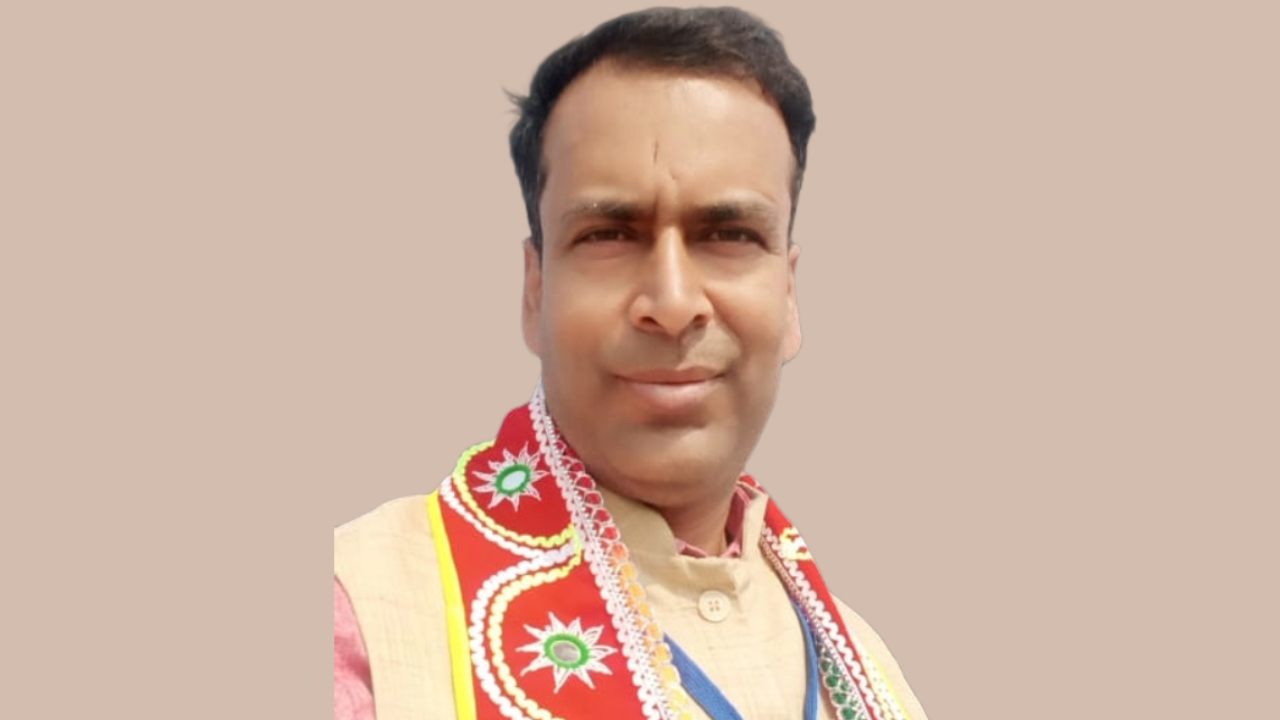Priyanka Mallick serves as the Managing Director at Q&Q Research Insights, a distinguished market research and analytics firm specializing in agriculture market research across India and 12+ APAC markets. With over 15 years of extensive experience in the agriculture sector, Priyanka is recognized for her unwavering dedication.
Her commitment goes beyond her role at Q&Q Research Insights; she actively engages with farmers and key stakeholders in diverse markets across India and the Asia-Pacific (APAC) region. This commitment is further exemplified by her position as a board member at Shree Renuka Sugars, a prominent company under the Wilmar Group, showcasing her multifaceted contributions to the industry.
In a distinctive conversation with Sandeep Joshi, a Senior Journalist representing The Interview World, Priyanka Mallick, the Managing Director at Q&Q Research Insights, provides valuable insights into the anticipated impact of Union Budget 2024 on the agricultural sector. Let’s explore the key highlights gleaned from her interview.
Q: With agriculture being a crucial aspect of the Indian economy, what measures can the government take to enhance the farming community and support farmers?
A: Agriculture, accounting for approximately 15% of India’s GDP and employing nearly 40% of the nation’s workforce, unquestionably serves as the foundation of the Indian economy. It demands specific attention from the government. Recent challenges, stemming from a lower-than-expected Southwest Monsoon and irregular rainfall distribution, have resulted in a reduced Kharif output. Additionally, the slow pace of Rabi sowing and concerns about the persistence of El Niño into 2024 amplify worries about future agricultural yields.
Given these circumstances, strategic interventions are urgently needed to strengthen the agricultural sector:
Firstly, a focus on Climate Resilient Agriculture is crucial. This entails developing irrigation infrastructure and prioritizing investments in advanced irrigation systems. Expanding the reach of drip irrigation and enhancing reservoirs and canals is essential. A concentrated effort on the Pradhan Mantri Krishi Sinchai Yojana (PMKSY) to improve water use efficiency will undoubtedly benefit farmers. Increased attention on rainfed areas, particularly in UP East, Bihar, and Jharkhand during the Kharif season, along with the development of irrigation systems, can reduce dependence on erratic monsoons.
Secondly, addressing Soil Health Management is imperative. Rejuvenating the deteriorating health of farmers’ soil, exacerbated by the pervasive use of chemical fertilizers and pesticides, is a critical intervention. Urgent measures, such as prioritizing awareness campaigns, comprehensive training, and incentivizing the adoption of organic fertilizers and biopesticides through subsidies, are necessary. Embracing practices like Zero Till farming, regular soil testing, and ensuring accessible infrastructure for testing are paramount to restoring soil health and ensuring agricultural resilience.
Thirdly, concerns with labor shortages pose a significant challenge for farmers. This results in delays in planting, higher cultivation expenses, lower profits, and delayed harvests, ultimately leading to reduced overall output. The pressing solution lies in embracing mechanization. While attention has been given to Kisan drones for the past two years, there is a crucial need to emphasize and promote their adoption in the field. Implementing education programs, subsidies on drones, and training initiatives for farmers on the practical usage of drones for tasks such as applying nutrients and pesticides can significantly save time, effort, and money. This, in turn, boosts profits for the farmers, making the adoption of mechanized solutions imperative for addressing labor shortages and enhancing overall agricultural efficiency.
Finally, sustainable farming practices are vital. The diminishing profitability of traditional transplanted rice, exacerbated by water scarcity, labor-intensive methods, and environmental issues, underscores the need for a transformative approach. The direct-seeded rice (DSR) method emerges as a sustainable and economically viable alternative, given its reduced input requirements. Accelerating the adoption of DSR requires robust policies promoting its use. Government intervention is essential to scale up this technology for wider farmer adoption. Additionally, incentivizing farmers through carbon credits could further encourage the shift towards environmentally friendly and economically sound agricultural practices.
Q: How might the budget address concerns related to irrigation, crop insurance, and modern agriculture practices?
A: To significantly improve irrigation systems for farmers, the Indian government should adopt a comprehensive strategy that encompasses infrastructure development, technology integration, financial support, and community involvement. Substantial funding should be allocated for the development and maintenance of irrigation infrastructure, covering the construction and repair of canals, dams, and reservoirs.
Simultaneously, the promotion of remote sensing technologies and data analytics is crucial for monitoring soil moisture levels and optimizing irrigation scheduling. Financial incentives, subsidies, or low-interest loans should be provided to farmers to encourage the adoption of water-efficient irrigation practices.
Additionally, there is a need to strengthen and promote crop insurance schemes to offer financial support to farmers facing crop failure due to adverse weather conditions, as observed in the impact of Kharif 2023.
For a revolutionary shift in agriculture, the implementation of drone services is essential. Drones, equipped with advanced sensors, offer precise land sensing and crop data, enabling targeted interventions to minimize yield losses. They also reduce labor requirements through efficient monitoring and spraying of nutrients/pesticides on large areas, promoting cost efficiency. Making drone technology accessible through subsidies encourages adoption, particularly among small farmers. This transformative approach enhances crop yields, ensures timely interventions, and contributes to sustainable and data-driven agricultural practices.
Q: How do the farmers anticipate the upcoming budget to address their key expectations and concerns?
A: Farmers are looking forward to a boost in their income, which can be achieved by improving the profitability of crops. This involves implementing cost-effective cultivation practices, managing labor more efficiently, embracing technology, and stabilizing market rates for horticulture crops. To protect farmers from exploitation, hoarding, and supply chain inefficiencies, the introduction of Minimum Support Prices (MSPs) is crucial.
By strengthening market linkages and making strategic investments in the agricultural supply chain, including enhanced storage facilities, we can ensure that farmers receive optimal prices for their produce. Additionally, prioritizing exports and establishing direct connections between farmers and exporters can minimize value loss associated with intermediary involvement. These measures, when implemented collectively, empower farmers and contribute significantly to the overall prosperity of the agricultural sector.
Q: What are the priority agriculture segments that demand focused attention from the government to enhance overall sector growth and sustainability?
A: Ensuring nutritional food security is crucial, especially in light of the 22% of the population grappling with malnutrition in India. To address this issue effectively, the government should continue its emphasis on millets and enhance its initiatives regarding pulses. Encouraging farmers to cultivate pulses holds significant importance due to their lower input requirements, environmental friendliness, and nutritional richness. This strategic focus not only enhances food security but also aligns with sustainable and health-conscious agricultural practices, thus fostering a holistic approach to addressing nutritional challenges.
Q: What key observations can be made regarding the current state of the food processing industry, and what specific government interventions are recommended to address challenges and promote growth in the sector?
A: Promoting the development of small-scale industries dedicated to processing agricultural produce at the village level is crucial. This initiative involves active collaboration with local farming communities, Farmer Producer Organizations (FPOs), and women. Ensuring easy access to loans for establishing these local processing units at the Taluka level is a key step towards empowering local entrepreneurs.
Moreover, requiring local universities, research centers, and extension cells to impart training to village communities is essential. This training focuses on creating value-added products, thereby enhancing the skill set of the local workforce. As a result, they become adept at producing goods that can be effectively marketed in larger markets. This comprehensive approach not only adds value to local products but also fosters economic growth and sustainability at the grassroots level. By connecting various stakeholders and providing necessary support, we can create a robust ecosystem that benefits both the local economy and the overall community.









